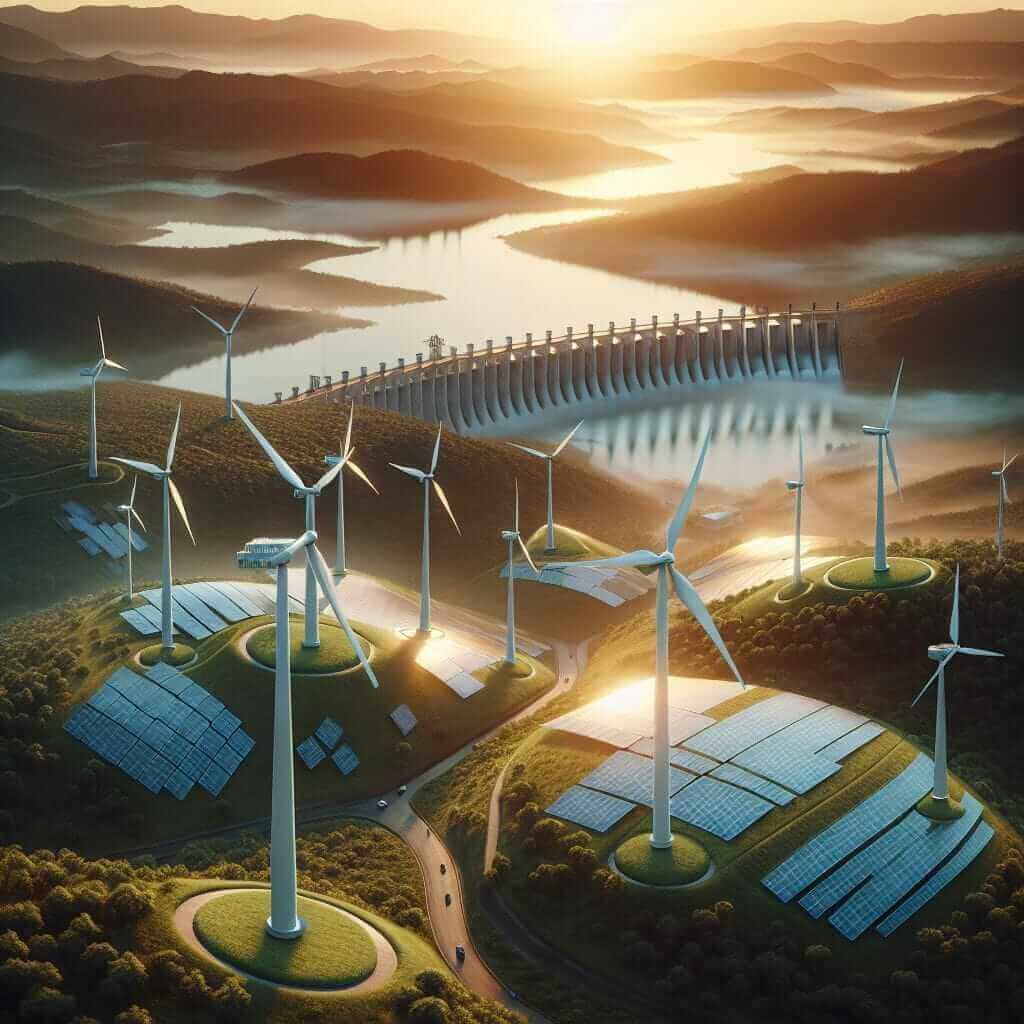The IELTS Reading section tests your ability to comprehend and interpret a variety of texts in English. With growing global attention on sustainable practices, topics related to renewable energy have frequently appeared in the IELTS Reading test. Understanding the implications of renewable energy for economic policy is a timely and relevant aspect that might be covered in future exams. This guide will provide you with a realistic IELTS Reading practice, detailed explanations, essential vocabulary, and useful grammar tips based on the keyword “What are the implications of renewable energy for economic policy?”
Reading Practice Test
Reading Passage
What are the Implications of Renewable Energy for Economic Policy?
The transition to renewable energy has significant implications for economic policy across the globe. As countries strive to meet climate goals, they are increasingly turning to renewable energy sources such as wind, solar, and hydroelectric power. This shift has profound economic, social, and environmental impacts that policymakers must navigate.
Firstly, renewable energy can drive economic growth by creating new jobs and industries. Investment in renewable energy infrastructure can stimulate the economy, particularly in manufacturing, installation, and maintenance sectors. For example, the solar industry alone has seen exponential growth in employment opportunities worldwide.
Secondly, renewable energy sources can reduce dependency on imported fuels, enhancing energy security and reducing energy expenditures. Countries endowed with abundant renewable resources can generate their own energy, leading to more stable and predictable energy costs. This self-reliance can mitigate the economic shocks associated with volatile fossil fuel markets.

However, the transition also presents economic challenges. The upfront costs of renewable energy technologies are often substantial. Governments must decide whether to subsidize these costs, potentially reallocating funds from other critical areas such as healthcare or education. Furthermore, the shift from fossil fuels may lead to job losses in traditional energy sectors, necessitating policies for workforce retraining and social safety nets.
Additionally, the intermittent nature of some renewable energy sources complicates economic planning. Energy storage solutions and grid management technologies are essential to ensuring a reliable supply of electricity. Policymakers must consider how to incentivize innovation and infrastructure development in these areas.
Ultimately, the integration of renewable energy into national economies requires careful and strategic economic policies. Governments must balance the benefits and challenges to achieve sustainable development, energy security, and economic stability.
Questions and Answer Types
1. Multiple Choice
-
What is one economic benefit of renewable energy?
a. Reducing healthcare costs
b. Creating new jobs
c. Increasing dependency on fossil fuels
d. Lowering education expenses -
Which industry has seen significant employment growth due to renewable energy?
a. Agricultural sector
b. Solar industry
c. Automotive industry
d. Textile industry -
What challenge does renewable energy pose to economic policy?
a. Increased reliance on imported fuels
b. Stable energy costs
c. High upfront costs
d. Reduction in energy security
2. Identifying Information (True/False/Not Given)
- Renewable energy eliminates the need for energy storage solutions.
- Investment in renewable energy can stimulate economic growth.
- Transitioning to renewable energy reduces job opportunities in the manufacturing sector.
3. Sentence Completion
-
Governments must decide whether to subsidize the __ of renewable energy technologies.
-
Renewable energy can lead to more __ energy costs for countries.
-
The integration of renewable energy requires ____ and ____ economic policies.
Answer Keys and Explanations
-
b. Creating new jobs – The passage states that renewable energy can drive economic growth by creating new jobs and industries.
-
b. Solar industry – The passage mentions that the solar industry has seen exponential growth in employment opportunities worldwide.
-
c. High upfront costs – The passage discusses the substantial upfront costs of renewable energy technologies and the challenge they pose to economic policy.
-
False – The passage mentions the need for energy storage solutions and grid management technologies.
-
True – The passage states that investment in renewable energy can stimulate the economy.
-
Not Given – The passage does not specify the impact of renewable energy on the manufacturing sector job opportunities.
-
upfront costs – The passage discusses governments potentially subsidizing the upfront costs of renewable energy technologies.
-
stable and predictable – The passage mentions that renewable energy can lead to more stable and predictable energy costs.
-
careful and strategic – The passage states that the integration of renewable energy into national economies requires careful and strategic economic policies.
Common Mistakes
- Misinterpreting the economic challenges posed by renewable energy, including ignoring the high upfront costs and intermittent energy supply.
- Overlooking job creation in new industries while considering job losses in traditional energy sectors.
Vocabulary
- Transition (n.) /trænˈzɪʃən/ – chuyển đổi: The process or a period of changing from one state to another.
- Intermittent (adj.) /ˌɪntəˈmɪtənt/ – gián đoạn: Occurring at irregular intervals, not continuous or steady.
- Incentivize (v.) /ɪnˈsɛntɪvaɪz/ – khuyến khích: Provide someone with an incentive to do something.
Grammar Focus
-
Compound Sentences: Use compound sentences to combine two related ideas using conjunctions (e.g., and, but, or). For example, “Renewable energy can drive economic growth, and it can also enhance energy security.”
-
Passive Voice: Use the passive voice to emphasize the action rather than the subject. For example, “Investment in renewable energy infrastructures can be stimulated by government policies.”
Tips for High IELTS Reading Scores
- Practice Regularly: Consistently practice reading various texts and answering related questions.
- Boost Vocabulary: Improve your vocabulary by learning new words related to different topics, including renewable energy.
- Time Management: Develop strong time management skills to answer all questions within the allotted time.
- Understanding Question Types: Familiarize yourself with all types of reading questions used in the IELTS exam.
Consistent practice and strategic preparation are key to mastering the IELTS Reading section and achieving a high score. Good luck with your IELTS preparation!